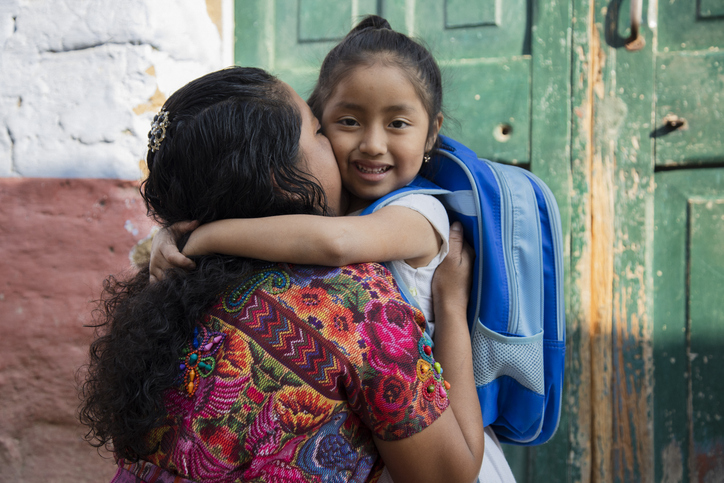

Have you ever heard that children get confused when learning two languages? Sadly, many Latinos have heard this misconception, even though research shows the opposite.
Dual language learners are children who are learning two (or more) languages at the same time or are learning a second language while continuing to develop their home language. One in three children under five years old in the US is a dual language learner, building the foundation for bilingualism and all its lifelong benefits from birth. Yet widespread misinformation about multilingual development continues putting these children’s futures at risk.
Extensive scientific evidence, reviewed by the National Academies of Sciences, confirms babies are linguistic geniuses, equipped with the neurological capacity to acquire multiple languages effortlessly before they can even walk or talk. Newborns can differentiate the distinct sound systems of the languages their mothers spoke during pregnancy from other languages. Bilingualism does not cause language delays; in fact, bilingual children often achieve the same or greater language proficiency as their monolingual peers. This holds true even for children with developmental delays, who can benefit socially from bilingualism. Suppressing a child’s home language is unnecessary to achieve proficiency in English and can harm their emotional well-being. Instead, supporting bilingualism can enhance proficiency in both languages, leading to better academic outcomes. The lifelong cognitive, social, and cultural benefits of bilingualism are well documented, making it a valuable asset for any child.
However, an insidious myth persists that young children become “confused” when exposed to two languages, setting millions on a path of subtractive instead of additive bilingualism. In a recent UnidosUS survey, a stunning 38% of Latino parents whose children under nine years old received speech therapy reported being urged by providers to stop or reduce speaking Spanish to their children. This data confirmed the experiences that Latino parents shared with UnidosUS in focus groups. This type of language suppression not only is contradicted by all updated scientific evidence but also can undermine healthy identity formation and family relationships.
At UnidosUS, we are empowering Latino families with the knowledge and tools they need to protect their children’s linguistic potential. Our new Parent Self-Advocacy: Supporting Intentional Responses to Misinformation about Early Bilingualism resource not only outlines the overwhelming proof of babies’ vast multilingual capacity but also provides tools to confidently confront pernicious myths like the idea that learning two languages causes confusion.1 We stand with the 90% of Latino families that have expressed their desire to raise bilingual children in the National Latino Family Survey, 2 validating their aspirations and arming them with the means to advocate for their children’s futures.
When language diversity is embraced instead of suppressed, the societal benefits are invaluable. That’s why UnidosUS supports investing $1 billion to increase bilingual learning slots in Early Head Start and Head Start and $50 million to support providers in transitioning toward research-backed dual language models. Our comprehensive charts investments to grow a skilled bilingual educator workforce, valid assessments in multiple languages, and holistic family engagement. At our Education Summit in June, UnidosUS will dive deep into the latest strategies, research, and policies needed to support dual language development.
3 Emerging bilinguals represent a critical opportunity to cultivate a multilingual workforce prepared to lead in our diverse society and global economy.
By aligning policies and systems with the science of how children actually learn languages, we can unleash the infinite capabilities embedded in our culturally and linguistically diverse population from the early years. The future success of our nation depends on boldly embracing our multilingual potential, starting at birth. Our time to ensure equity is now.
Links
1. https://unidosus.org/publications/parent-self-advocacy-supporting-intentional-responses-to-misinformation-about-early-bilingualism
2. https://unidosus.org/publications/national-latino-family-report-2024
3. https://unidosus.org/education-summit
Tania Villarroel is senior policy analyst for early childhood education at UnidosUS.





